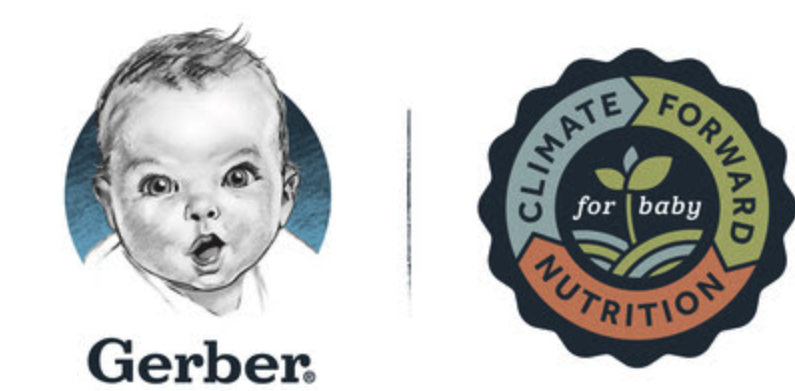
Jul 16, 2021
Gerber commits to carbon-neutrality for organic products in 2022
Gerber, the well-known brand for baby food and other foods for early childhood, announced July 15 a plan to invest in farm research and regenerative agriculture techniques.
Gerber also committed to carbon neutrality across its baby food portfolio by 2035 through collaboration with a third-party carbon-neutral certifier, with 100% of its organic portfolio, natural pouches and glass jars set to be carbon neutral in 2022, according to a news release from the company. Gerber claimed to be the first U.S. company to commit to carbon-neutral baby food products.
“The commitment we make today is the start of the next chapter in elevating the choices we give parents who are seeking food that is good for baby and good for the planet, harnessing the next generation of regenerative farming and sustainable business practices,” Tarun Malkani, president and CEO at Gerber, said in the news release.
The effort, called “Climate Forward Nutrition,” is Gerber’s commitment to incorporate practices and technology to limit and eliminate carbon emissions. Their efforts will take place on the farms where Gerber fruits and vegetable are grown and carry through the brand’s manufacturing, packaging and transportation processes to ensure babies everywhere get the nutrition they need to thrive while helping to protect the planet. Gerber will also be partnering with a third party to certify that Gerber’s baby food products are carbon neutral by 2022 and 2035
Gerber plans to reach carbon neutrality by implementing practices across several priority areas: regenerative agriculture, packaging, manufacturing and supply chain management, and recipe design, and by investing in high-quality offsetting projects.
Key initiatives in Gerber’s sustainability and carbon neutrality roadmap include:
- Creating fruit and vegetable research farm demonstration plots in Western Michigan where Gerber partners with the nonprofit Rodale Institute and Michigan State University to conduct unprecedented research in innovative technologies and advanced regenerative organic farming practices focused on replenishing soils, increasing biodiversity and evaluating the potential for nutritional benefits.
- Optimizing energy use and sourcing 100% renewable electricity for our own manufacturing facilities and distribution centers by 2025.
- Progressing our ambition to make 100% of our packaging recyclable or reusable by 2025 and continuing to reduce or eliminate unnecessary packaging material where possible.
- Advancing continuous improvement with Gerber farmers, or “Gerber Growers,” and documenting adoption of regenerative farming practices through data verified by Sustainable Environmental Consultants’ EcoPractices platform.
- Assessing environmental impact as part of all new product innovations and introducing more products with plant-based protein across Gerber’s Baby Food portfolio.
- Planting one million trees in partnership with the National Forest Foundation and One Tree Planted in U.S. National Forests across 10 states.
South Pole, a carbon project and climate solutions provider, conducted a baseline carbon footprint assessment for the brand and suggested ways to lower the organization’s emissions.
“Climate change affects us all – especially the very young – and we are proud to partner with Gerber to help realize their climate goals,” said Franziska Sinner, Head of Corporate Sustainability at South Pole. “Gerber’s commitment to implementing sustainable practices throughout the product lifecycle – from farm to table via low carbon supply chains – is visionary and has the power to inspire bold environmental action from other organizations.”
Gerber Products Co. was founded in 1928 in Fremont, Michigan. Gerber joined the Nestlé family of companies on Sept. 1, 2007. Gerber is a leader in early childhood nutrition.









